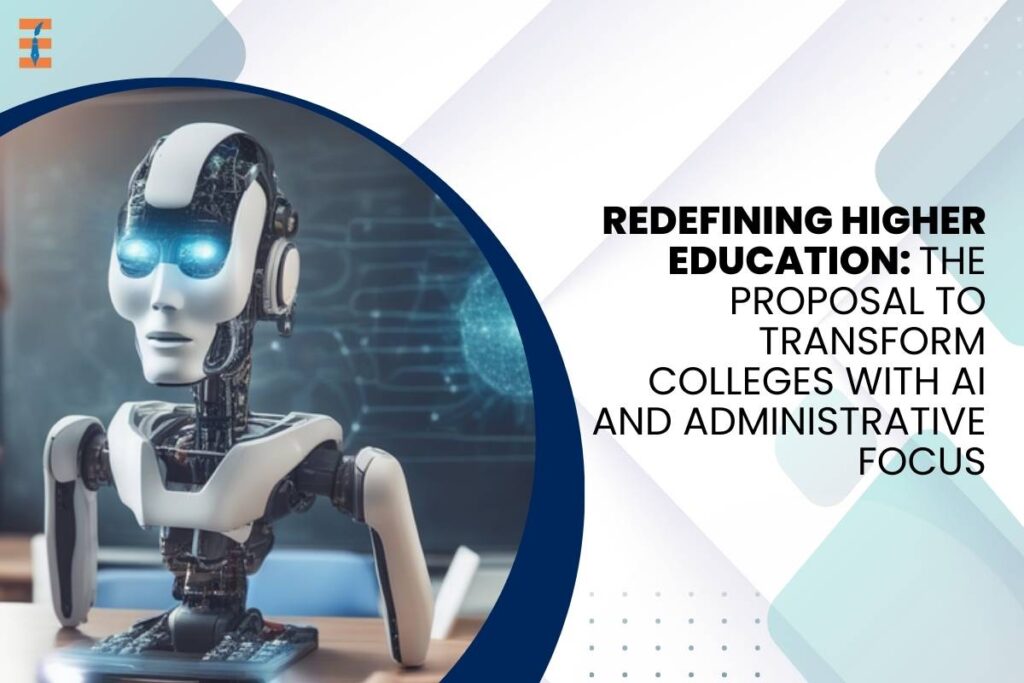In a bold proposal aimed at revolutionizing higher education, a veteran professor suggests a radical restructuring of colleges like Pomona College, emphasizing the elimination of faculty and a shift towards advanced AI solutions. This proposal, if adopted widely, could drastically reshape the traditional college landscape while addressing financial challenges.
The proposal, outlined by the professor with decades of experience at Pomona College, identifies two primary challenges plaguing higher education: bloated bureaucracies and the emergence of sophisticated AI technologies, particularly chatbots. By strategically phasing out faculty positions and transitioning to AI-driven learning environments, colleges could streamline operations, cut costs, and potentially enhance rankings.
At the heart of the proposal is a startling revelation about the changing demographics within Pomona College over the past few decades. Despite a significant increase in student enrollment, the number of tenured and tenure-track professors has decreased, while administrative roles have ballooned. This trend, characterized by a diminishing professor-administrator ratio, has prompted concerns about long-term financial sustainability.
The proposed solution is straightforward yet controversial. By accelerating the attrition of faculty positions and incentivizing voluntary departures, colleges like Pomona could gradually transition to a model where administrators dominate the institutional landscape. The professor envisions a scenario where administrators focus solely on administrative tasks, freed from the challenges posed by students and faculty.
Navigating AI Education’s Cost-Saving Challenges
The financial implications are significant. With a reduced need for traditional educational spaces like classrooms and dormitories, colleges could leverage their assets more efficiently. Renting out empty spaces and reallocating resources towards AI infrastructure and administrative salaries could bolster institutional finances and potentially boost endowments.
However, the proposal’s most contentious aspect lies in its embrace of AI-driven education. The professor suggests a complete shift to online learning facilitated by advanced chatbot technology. Students would interact with AI instructors and assessment bots, completing courses remotely without the need for physical campuses or traditional faculty oversight.
While this approach promises cost savings and convenience for students, it raises fundamental questions about the nature of education and the role of human instructors in fostering critical thinking and engagement. Critics argue that an education system devoid of human interaction risks diminishing the quality of learning and overlooks the holistic development that occurs in a physical classroom setting.
A Path to Affordable, Efficient, and Accessible Higher Education
Despite these concerns, proponents of AI-driven education highlight the potential for personalized learning experiences, instant feedback, and scalability. The efficiency gains from automated grading and course delivery could also address concerns about rising tuition costs and accessibility to higher education.
The proposal’s ultimate vision is a paradigm shift where colleges become hubs for administrative excellence, leveraging AI for educational delivery. Students, equipped with AI tools, navigate courses independently, earning credentials at a fraction of traditional costs.
As higher education continues to grapple with financial pressures and technological advancements, proposals like these spark essential debates about the future of learning institutions. While the complete elimination of faculty and physical campuses remains a contentious idea, it underscores the need for innovative solutions to ensure the sustainability and relevance of higher education in a rapidly evolving landscape.










